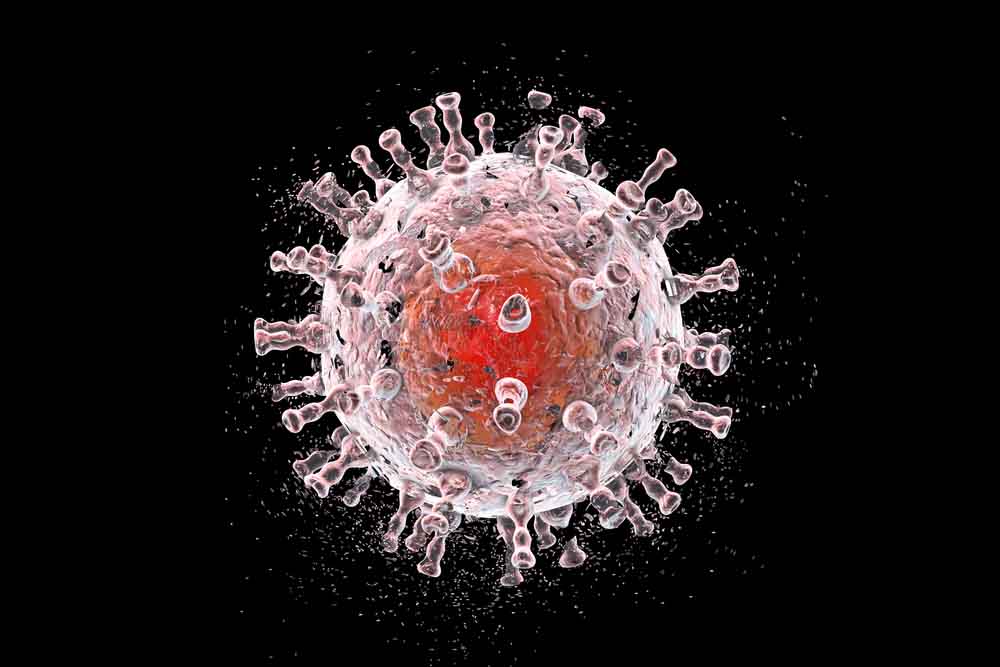Causes of sarcoma

Mutations, radiations, and viruses may cause sarcomas. They originate from stem cells of various tissues and have the capacity to differentiate into other type of cells; this explains the pathogenesis of rhabdomyosarcoma and osteosarcoma, which may develop where there are no skeletal muscles.
Osteosarcoma is associated with an RB gene mutation (retinoblastoma gene), P53 gene mutation and other cyclin gene mutations. Ewing sarcoma is caused by translocation of EWS gene on chromosome 22 to FL1 on chromosome 11, or by an ERG gene on chromosome 21. Synovial sarcomas are also due translocation mutation between chromosome x and chromosome 18.
Kaposi sarcoma is associated with human herpes virus 8 or Kaposi sarcoma herpes virus infection. This virus is favored by a decreased T cell function in AIDS or age-related immunocompromised. The virus resides in the endothelial cells and trigger the production of vascular endothelial growth factor. This growth factor causes over production of cells followed by p53 inhibition and cyclin D homologous protein production by the virus. All of this leads to the formation of sarcoma in immunocompromised individuals.
Angiosarcoma of the liver is associated with arsenic poisoning, contrast use for radiological imaging, and polyvinyl chloride (plastic) use. Other causes include lymphedema after mastectomy, and radiations. Malignant mesothelioma is associated with asbestos exposure. Asbestos can cause mutation in NF2 gene and P15/CDKN2A gene. Meningioma is associated with NF2 gene mutation. Lymphoma is associated with translocation mutations, Epstein – Barr virus infection, Human immunodeficiency virus, human herpes virus 8, and Helicobacter pylori infections.
Rhabdomyosarcoma may be due to a P53 gene mutation, or an NF1 gene mutation. We may also name the Li-Fraumeni syndrome, which includes a triad of osteosarcoma, rhabdomyosarcoma and liposarcoma and is due to P53 gene mutation. Uterine leiomyosarcoma may be due to RB1 gene mutation. Sarcomas are associated with other ailments, including Werner’s syndrome (known as adult progeria), neurofibromatosis type 1, Gorlin syndrome, familial adenomatous polyposis and tuberous sclerosis.
Even though we known about the mutations, it is difficult and sometimes impossible to trace the exact cause of sarcoma in a given individual.

